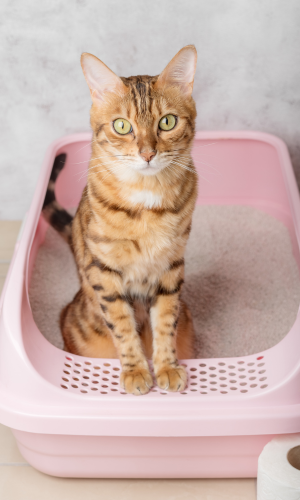Zesty Insights
Dive into the world of news and information with engaging articles.
Why Do Cats Knock Everything Off the Table?
Discover the mischievous reasons behind your cat's table antics and learn how to stop the chaos today!
Understanding the Feline Instinct: Why Do Cats Knock Things Off Tables?
Understanding the feline instinct can provide fascinating insights into why our cats exhibit certain behaviors, such as knocking items off tables. This behavior is often instinctual and rooted in their natural hunting and playful tendencies. Cats are curious creatures, and they explore their environment through touch. By swatting objects off surfaces, they are mimicking their feline ancestors who would knock prey down to assess it. For more on feline behavior, check out this ASPCA article on common cat behaviors.
Moreover, there's also a psychological aspect to consider. Cats may knock things off tables to get their owner's attention or simply for the fun of it! Dr. Mikel Delgado, a certified cat behavior consultant, explains that cats are intelligent and learn quickly that performing this action can elicit a reaction from their humans. The curiosity and attention-seeking behavior combined with their playful nature contribute to this amusing yet perplexing act. To explore more about why cats act this way, visit this insightful Chewy article.

The Science Behind Cats' Tabletop Antics: What's Going On?
The quirky behavior of cats on tabletops has intrigued many pet owners and scientists alike. This behavior can be attributed to several factors, including instinctual hunting traits, curiosity, and a desire for territorial dominance. Cats are natural climbers and often find elevated surfaces more secure, allowing them to observe their surroundings safely. According to a study published in the National Institutes of Health, this instinct is rooted in their evolutionary history as solitary hunters where higher vantage points can make all the difference in spotting prey.
Moreover, when cats engage in their tabletop antics, they are also seeking attention and stimulation. Cats thrive on interaction with their environment and loved ones, often expressing their needs through playful behavior. This might involve knocking over objects or exploring new heights on a countertop. A study by the ASPCA explains that such actions can be a form of play, demonstrating their cognitive abilities and need for physical engagement. Understanding these behaviors is essential for fostering a harmonious relationship between cats and their human companions.
Is Your Cat Bored? Exploring the Reasons for Tabletopping Behavior
Cats are curious creatures, and their tabletopping behavior can often be a sign of boredom. When they jump on countertops, tables, or any elevated surface, they may be seeking new stimulation or engaging in their natural instinct to explore. In a multi-cat household or even with a single feline companion, it’s essential to provide varied distractions and environmental enrichment to prevent this common behavior. Consider incorporating toys, climbing trees, or interactive play sessions to keep your cat engaged and prevent boredom.
Additionally, understanding why your cat exhibits tabletopping behavior can help address the issue effectively. Cats might be looking for attention, feeling stressed, or simply following their instincts to seek out high vantage points. If your cat consistently displays this behavior, take the time to observe their daily routine and environment. You might find that introducing new activities and regular playtime can significantly enhance their mood and reduce these countertop escapades.